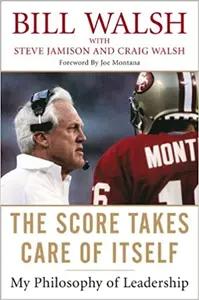Plagues and Peoples
By William McNeill
Category
ScienceRecommended by
"Plagues and Peoples" by William McNeill is a thought-provoking and comprehensive exploration of the intricate relationship between infectious diseases and human societies throughout history. McNeill argues that plagues have shaped the course of human civilization in profound ways, influencing social and cultural developments, economic systems, and even the rise and fall of empires.
The book begins by examining how the Neolithic Revolution increased human vulnerability to disease due to population density and the domestication of animals. McNeill then delves into the impact of epidemics on ancient civilizations, from the neglected role diseases played in the decline of Rome to the devastation caused by the Black Death in Europe during the Middle Ages.
McNeill also delves into the effects of colonialism and the Columbian Exchange on the spread of diseases and their devastating consequences on indigenous populations. He highlights how European diseases, such as smallpox, influenza, and measles, decimated Native American communities, altering their social structures and paving the way for European colonization.
Furthermore, the author examines the complex interplay between medicine and society, exploring the role of medical advancements in combating epidemics and the subsequent shifts in societal behavior. He emphasizes the relevance of public health measures, vaccination campaigns, and improvements in sanitation as critical factors in curbing the impact of diseases and shaping modern society.
Throughout the book, McNeill emphasizes the interconnectedness of human societies and the spread of infectious diseases. He posits that the breakneck pace of globalization in the modern era has increased the risk of epidemics, requiring proactive international cooperation and effective public health policies to ensure global health security.
"Plagues and Peoples" serves as a valuable and insightful guide, shedding light on the historical and social implications of diseases. McNeill's rigorous research and engaging writing style make this book an essential read for anyone interested in understanding the profound ways in which epidemics have shaped human civilization.
The book begins by examining how the Neolithic Revolution increased human vulnerability to disease due to population density and the domestication of animals. McNeill then delves into the impact of epidemics on ancient civilizations, from the neglected role diseases played in the decline of Rome to the devastation caused by the Black Death in Europe during the Middle Ages.
McNeill also delves into the effects of colonialism and the Columbian Exchange on the spread of diseases and their devastating consequences on indigenous populations. He highlights how European diseases, such as smallpox, influenza, and measles, decimated Native American communities, altering their social structures and paving the way for European colonization.
Furthermore, the author examines the complex interplay between medicine and society, exploring the role of medical advancements in combating epidemics and the subsequent shifts in societal behavior. He emphasizes the relevance of public health measures, vaccination campaigns, and improvements in sanitation as critical factors in curbing the impact of diseases and shaping modern society.
Throughout the book, McNeill emphasizes the interconnectedness of human societies and the spread of infectious diseases. He posits that the breakneck pace of globalization in the modern era has increased the risk of epidemics, requiring proactive international cooperation and effective public health policies to ensure global health security.
"Plagues and Peoples" serves as a valuable and insightful guide, shedding light on the historical and social implications of diseases. McNeill's rigorous research and engaging writing style make this book an essential read for anyone interested in understanding the profound ways in which epidemics have shaped human civilization.
Share This Book 📚
More Books in Science

Scale
Geoffrey West

Einstein
Walter Isaacson

How to Change Your Mind
Michael Pollan

The Checklist Manifesto
Atul Gawande

When Breath Becomes Air
Paul Kalanithi

Behave
Robert Sapolsky

Who We Are and How We Got Here
David Reich

Genome
Matt Ridley

The Beginning Of Infinity
David Deutsch

The Origin of Consciousness in the Breakdown of the Bicameral Mind
Julian Jaynes

The Pleasure of Finding Things Out
Richard P. Feynman

The Selfish Gene
Richard Dawkins

The Structure of Scientific Revolutions
Thomas Kuhn

I Contain Multitudes
Ed Yong

If The Universe Is Teeming With Aliens...Where Is Everybody?
Stephen Webb

Living Within Limits
Garrett Hardin

Moonwalking with Einstein
Joshua Foer

QED
Richard Feynman

Six Easy Pieces
Richard P. Feynman

The Book of Why
Judea Pearl

The Double Helix
James D. Watson Ph.D.

The Evolution of Everything
Matt Ridley

The Gene
Siddhartha Mukherjee

The God Delusion
Richard Dawkins

The Precipice
Toby Ord

Thing Explainer
Randall Munroe

What Do You Care What Other People Think?
Richard P. Feynman

100 Plus
Sonia Arrison

A Brief History of Time
Stephen Hawking

A Cultural History of Physics
Karoly Simonyi
Popular Books Recommended by Great Minds 📚

Hillbilly Elegy
J.D. Vance

The Score Takes Care of Itself
Bill Walsh

Trailblazer
Marc Benioff

The Outsiders
William Thorndike

Foundation
Isaac Asimov

The Rational Optimist
Matt Ridley

Destined For War
Graham Allison

The Hard Thing About Hard Things
Ben Horowitz

Homo Deus
Yuval Noah Harari

The Internet of Money Volume 1
Andreas Antonopolous

Dune
Frank Herbert

Give and Take
Adam Grant

Behave
Robert Sapolsky

Hopping Over The Rabbit Hole
Anthony Scaramucci

The Autobiography of Benjamin Franklin
Benjamin Franklin

The Undoing Project
Michael Lewis

Rework
Jason Fried

The Power of Habit
Charles Duhigg

Red Notice
Bill Browder

Why We Sleep
Matthew Walker

Siddhartha
Hermann Hesse

The Lessons of History
Will & Ariel Durant

High Output Management
Andrew Grove

The Holy Bible
Various

Bad Blood
John Carreyrou

The Bitcoin Standard
Saifedean Ammous

The Three Body Problem
Cixin Liu

The Great CEO Within
Matt Mochary

Zero to One
Peter Thiel

Brotopia
Emily Chang
